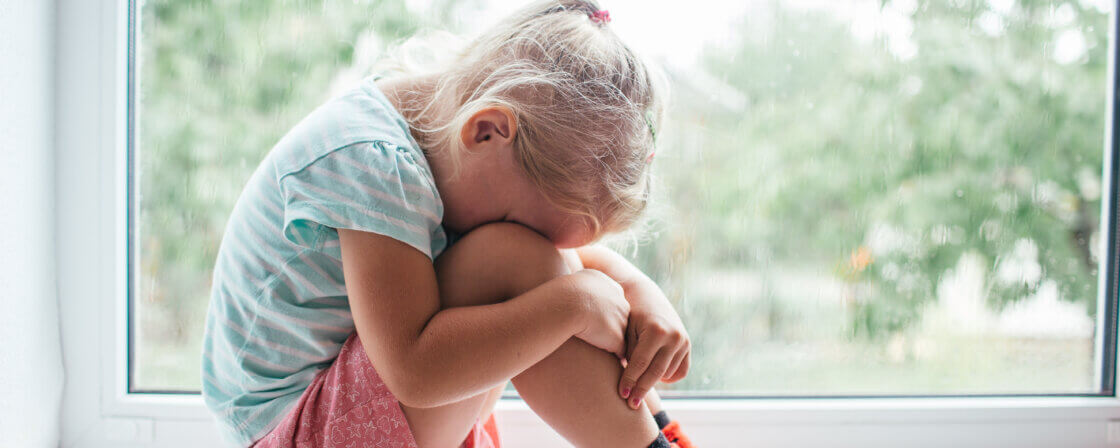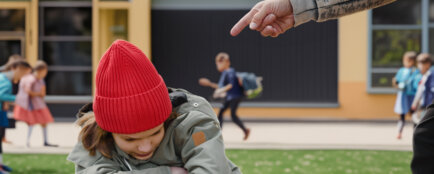What is child abuse and where do the boundaries lie?
Child abuse includes not only the obvious forms of domestic violence, such as physical or sexual abuse, but also neglect that puts a child in danger or prevents their healthy development. From a legal perspective, it is important to distinguish where the boundary lies between educating and harming.
Physical punishment of children in the context of education is still tolerated in our country in certain cases. However, in no case must they endanger the child’s health. Indeed, any violent behaviour that exposes a child to physical pain or psychological stress can be classified as abuse. Beating children or any other violent approach that exceeds the level of reasonableness may be considered a criminal offence under Czech law.
If you or someone in your neighbourhood is facing abuse and you do not know where to go for help, find the nearest shelter.
Are you solving a similar problem?
Do you suspect abuse but don't know what to do?
Contact our legal clinic and take advantage of our online service that will get you in touch with a family law expert within 48 hours. They will listen to you and, depending on the case, advise you on what you can do if you suspect child abuse or what your reporting obligations are.
I need advice
- When you order, you know what you will get and how much it will cost.
- We handle everything online or in person at one of our 6 offices.
- We handle 8 out of 10 requests within 2 working days.
- We have specialists for every field of law.
What does the law say about child abuse?
Czech legislation places great emphasis on the protection of children from violence. Child abuse is considered a criminal offence under the Criminal Code. The Criminal Code states that parents, caregivers or other persons have no right to beat a child or subject him/her to physical or psychological punishment if this may endanger his/her health or psyche. Physical punishment of children that has long-term or serious consequences is legally impermissible and its use may lead to criminal charges.
In addition to the Criminal Code, the Child Protection Act also applies to child protection, which imposes a duty on the protection authorities to intervene and protect a child if he or she is in danger. This Act works with international agreements such as the Convention on the Rights of the Child, which sets out the rights of the child to safety, protection and care.
There is current discussion that the government wants to ban physical punishment of children. As Justice Minister Blažek announced, “On the basis of our international legal obligations, we propose to declaratively enshrine the inadmissibility of corporal punishment of children in the Civil Code.” This prohibition is already in force in most UN countries, which have responded to the case law of the European Court of Human Rights and the UN Convention on the Rights of the Child. Current legislation states that educational measures may only be used in a form and to a degree that is proportionate to the circumstances, does not endanger the child’s health or development and does not affect the child’s human dignity. However, according to the amendment to the Civil Code, corporal punishment, mental hardship and other humiliating measures affect the human dignity of the child. Deputies are currently engaged in the second reading of the amendment.
In an interview with Radiožurnál, the government’s Human Rights Commissioner, Klára Šimáčková Laurenčíková, said that in many cases of really serious hardship we see many missed opportunities when the child himself or herself has not understood for a long time that what is happening to him or her is a serious situation and that he or she should seek help. He has the right to be treated with dignity and safety.
You also have a duty to report child abuse
Child abuse is undoubtedly a serious problem that needs to be addressed immediately. In the Czech Republic, there are clear legal standards and procedures that determine who can and should intervene in the case of suspected child abuse.
Who should intervene?
- Every citizen: according to the Law on Social and Legal Protection of Children, every citizen has the obligation to report suspected child abuse or neglect. This includes situations where someone suspects that a child is at risk of violence, abuse or inadequate care. The report can be made anonymously, which provides legal protection for the reporter.
- Institutional staff: Employees of schools, health care institutions and other organisations working with children have a duty to inform the Child Welfare Authority of suspected abuse. This obligation also applies to doctors and other professionals who come into contact with a child at risk
- Police: As soon as anyone discovers or suspects that abuse is taking place, they have the right and duty to inform the police. Failure to do so and to report the crime puts at risk the prosecution of the person who knows about the abuse and fails to intervene.
The OSPOD plays a major role in child abuse protection
The protection of children in the Czech Republic is primarily the responsibility of institutions such as the OSPOD (the Social and Legal Protection of Children). When child abuse or child abuse is suspected, the staff of this body have a duty to investigate the situation in the family. Once they find that a child is at risk due to the behaviour of parents or other family members, they can take steps to protect the child.
In such cases, the OSPOD often cooperates with the police, who are obliged to investigate the situation following a report. A police investigation is particularly necessary in cases of suspected serious violence, such as child sexual abuse or long-term physical abuse of children.
At the same time, NGOs provide important assistance and support to families and children. They focus on children who have been through traumatic experiences and help to integrate them into a safer environment.
State institutions, schools and NGOs should organise awareness-raising campaigns and educational programmes that teach parents how to manage difficult educational situations without physically punishing their children. There are also special programmes that work with parents of children at risk to help them cope with stressful situations without the use of violence. These programs may include therapies aimed at developing parenting skills, healthy emotion management classes, and counseling.
Tip for article
Tip: Because of the abuse, the minor may be placed in foster care. Learn what forms of foster care exist and how to become adoptive parents.
What are the penalties for child abuse?
There are serious penalties for child abuse, ranging from fines to imprisonment, depending on the severity and repetition of the offence. Physical punishment of children that has lasting effects on their health can lead to sentences of up to several years in prison. Penalties are increased if the person concerned commits violence repeatedly or if the child suffers long-term neglect.
Other consequences may include limiting or removing parental responsibility, which the court will apply in cases where it is clearly proven that the parents have physically punished or subjected the child to psychological stress. The parents may lose their right to custody and the court may order that the child be placed in the care of another person or in institutional care.
Parents have a fundamental duty to care for their child and to protect their child’s health and safety. Any physical punishment of children must be appropriate in law, educational and must not cause harm to health. Hitting children or physical punishment that results in injury may be considered child abuse and jeopardize parental responsibility.
Tip for article
Tip: Big disputes can also arise in the family when determining the paternity of a child. We have also focused on this topic and you can read more about it in the article under the link.
What is the impact of abuse on the child’s psyche?
Child abuse has a profound effect on children’s mental and physical health. Studies show that children who have been subjected to violence or physical punishment may have long-term psychological problems such as depression, anxiety or relationship difficulties. Child abuse often results in problems with confidence and self-esteem. Working with professionals, especially psychologists and therapists, plays an important role in the child’s rehabilitation, helping the child to overcome the trauma and return to a stable environment.
Practice confirms that the courts stand behind children
There are several precedent cases in court practice that show how the Czech courts approach the issue of child abuse and how important it is to protect a child from a dangerous environment, even if it means temporarily restricting parental rights.
One of the key cases is a situation where the court removed a child from parents who regularly used physical punishment of children as a means of upbringing. Although the parents themselves considered their actions to be educational, forensic experts have shown that the child suffered from serious psychological problems. This case led to a restriction of parental rights and the child was placed in foster care for a period of time until the parents completed a specialized program aimed at correcting their parenting attitudes.
Another significant case involved repeated child abuse in an extended family setting. The courts intervened very harshly in this case and heavy prison sentences were imposed on the person concerned. This case illustrates that the law and the courts are prepared to defend children even when they are threatened by close family members.
The importance of these court decisions is to send a clear signal that physical punishment of children or any other form of violence is not acceptable and that child protection takes precedence over any “educational” practices that could lead to harm to the child.
Summary
Child abuse is a complex problem that involves both physical and psychological forms of violence. Czech law prohibits physical punishment of children that exceeds the bounds of reasonableness and requires protection of children from all forms of harm. In addition to criminal sanctions, parents and caregivers who subject children to child beating or other violence are subject to measures that may include temporary limitation of parental responsibility or removal of the child. Child protection is a collective responsibility and anyone who encounters a case of child abuse or exploitation has a duty to report the situation.




